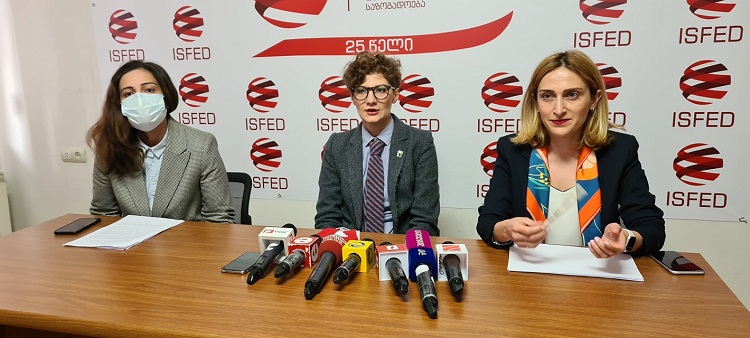ISFED: 8% imbalance in summaries of election results was mostly corrected after election day

ISFED says that the Georgian Central Commission has corrected the imbalance in summaries of election results following the October 31 parliamentary elections. Photo: netgazeti.
The International Society for Fair Elections and Democracy (ISFED) NGO says that there was an imbalance between ballots cast and signatures of registered votes in eight per cent of election districts on the parliamentary election day in Georgia, on October 31, 2020.
The NGO says that the imbalance was mostly corrected by the country’s Central Election Commission (CEC) following the election day and not immediately (on election day) and now the data of ISFED and CEC ‘nearly match.’
ISFED says that per the law the imbalance should have been addressed on election day.
According to the law, corrections can also be made on the next day. However, this should happen in rare cases, only if it is very much needed,” ISFED said.
ISFED says that the CEC corrected the data ‘without the recount of summaries of election results and deep studies,’ just only based on explanations of the members of election commissions ‘which causes question marks.’
ISFED had to recount its data following a scandal related to the results of its parallel vote count.
 The ruling Georgian Dream party has accused ISFED of making 'severe mistakes.' Photo: Georgian Dream press office.
The ruling Georgian Dream party has accused ISFED of making 'severe mistakes.' Photo: Georgian Dream press office.
The NGO admitted to a mistake in its data of the parallel vote count in early December 2020, while the data had been used by opposition parties for several weeks ‘as evidence that the ‘elections were fabricated’.
- ISFED adjusts October 31 vote count results after detecting ‘technical fault’ in calculation formula
Following an internal audit ISFED adjusted the figures and said that the Georgian Dream ruling party received 47.6 per cent of votes instead of the initially reported 45.8 per cent in the parallel vote count, while the United National Movement/Strength in Unity election bloc received 27. 4 per cent of votes instead of 26.4 per cent.
However, the NGO repeated that there was an imbalance in the eight per cent of summaries of election results.
The ruling party said that like the initial data of the parallel vote count, ISFED’s statement on the imbalance between ballot papers and registered voters, was also incorrect.
CEC also said that the data was incorrect and that the imbalance was detected in only 19 summaries of election results of 3,657 polling stations which makes for 0.52 per cent of election districts.
 Tweet
Tweet  Share
Share